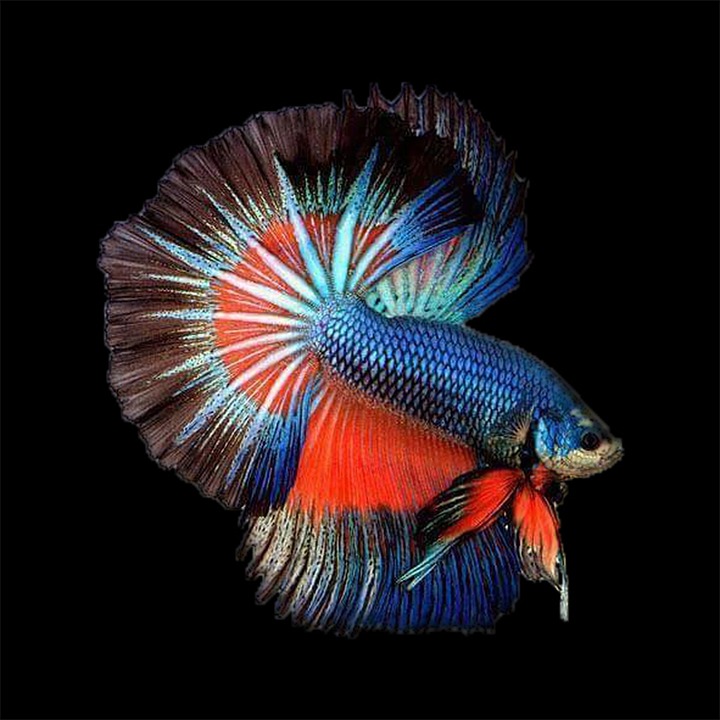Introduction:
Understanding and encouraging exploratory behavior in fish is crucial for their overall well-being and mental stimulation. In this article, we will delve into the fascinating world of fish behavior and provide you with effective methods to promote exploration in your aquatic companions. So, let’s dive in!
Understanding Fish Behavior: Exploratory Instincts
1. The Importance of Exploratory Behavior:
Exploratory behavior plays a significant role in the lives of fish. It allows them to satisfy their natural instincts, find food sources, establish territories, and seek potential mates. Without the opportunity to explore, fish may become stressed, bored, or even exhibit abnormal behavior patterns. Encouraging exploration is essential for their physical and mental health.
2. Natural Instincts:
A fish’s natural habitat greatly influences its exploration instincts. Species that inhabit rivers or streams may be more inclined to swim against currents and investigate various nooks and crannies in search of food or shelter. On the other hand, species from open water environments may exhibit more active swimming behaviors and explore large areas. Understanding a fish’s natural instincts can help create an environment that caters to their specific needs.
Creating an Enriching Environment: Stimulating Exploration
1. Providing Sufficient Space:
The size of the tank plays a crucial role in a fish’s exploration tendencies. By providing ample space, fish have the freedom to swim and investigate their surroundings. It is essential to research the minimum space requirements for different fish species to ensure their comfort and ability to explore.
2. Incorporating Hiding Spots and Structures:
Including hiding spots and structures in the aquarium can significantly enhance exploration. Fish feel secure when they have places to retreat to, and these hiding spots can also stimulate their natural instincts to investigate new environments. Caves, plants, and driftwood provide excellent hiding spots and structures that encourage exploration.
3. Introducing Novelty:
Introducing new elements in the tank can stimulate exploration. Fish are naturally curious creatures, and by adding new plants, decorations, or even rearranging existing structures, you can pique their interest and encourage them to explore. However, it is important to ensure that any additions are safe and suitable for the fish species present in the tank.
4. Maintaining Optimal Water Parameters:
Water quality and temperature greatly influence fish behavior. Ensuring that the water parameters are within the ideal range for your fish species will promote their overall health and encourage exploration. Poor water quality or temperature fluctuations can cause stress and hinder their natural instincts.
5. Proper Lighting:
Lighting conditions can impact fish behavior and exploration. Some fish species are more active during certain times of the day, and providing appropriate lighting can mimic their natural environment. Research the lighting requirements for your specific fish species and adjust the lighting conditions accordingly.
Engaging Activities to Encourage Exploration
1. Feeding Strategies:
Feeding techniques can promote exploration in fish. Instead of simply dropping food into the tank, consider using interactive feeding tools or methods that require fish to search for their food. This encourages them to explore their environment and satisfies their natural foraging instincts.
2. Tankmates and Social Interaction:
The presence of tankmates can influence exploration in fish. Compatible fish species that exhibit social behaviors can enhance social interactions and encourage exploration. However, it is important to research and select tankmates that are compatible in terms of size, temperament, and habitat requirements.
3. Environmental Challenges:
Introducing environmental challenges, such as obstacles or puzzles, can stimulate exploration. By placing objects or creating mazes within the tank, fish are encouraged to navigate their surroundings and engage in problem-solving activities. This not only promotes exploration but also provides mental stimulation.
4. Mimicking Natural Conditions:
Replicating natural conditions can encourage exploration. Simulating currents, waves, or natural habitats through the use of water pumps, air stones, or specific tank setups can mimic the fish’s natural environment and encourage them to explore their surroundings.
FAQs: Frequently Asked Questions
1. Can all fish species exhibit exploratory behavior?
Yes, all fish species have the potential to exhibit exploratory behavior. However, the extent and specific behaviors may vary depending on their natural instincts and habitat preferences.
2. How long does it take for fish to adapt to a new environment?
The time it takes for fish to adapt to a new environment can vary. Some fish may acclimate quickly, while others may take several days or weeks. It is important to provide a stress-free environment and monitor their behavior during this transition period.
3. Can overstimulation negatively impact fish behavior?
Yes, overstimulation can negatively impact fish behavior. Too much novelty or constant changes in their environment can cause stress and disrupt their natural behaviors. It is important to find a balance and provide a stimulating environment without overwhelming the fish.
4. What are signs of stress or lack of exploration in fish?
Signs of stress or lack of exploration in fish may include decreased appetite, hiding for extended periods, unusual swimming patterns, aggression, or changes in coloration. It is important to monitor their behavior closely and make adjustments to their environment accordingly.
5. Can fish become bored or depressed without adequate exploration?
Yes, fish can become bored or depressed without adequate exploration. Fish are intelligent creatures that require mental stimulation and an enriched environment to thrive. Lack of exploration and environmental stimulation can lead to stress, health issues, and even shortened lifespans.
Conclusion:
Understanding and promoting exploratory behavior in fish is essential for their overall health and well-being. By providing an enriching environment, engaging activities, and mimicking natural conditions, you can encourage your fish to explore and thrive. Remember to monitor their behavior closely and make adjustments accordingly. Happy fishkeeping!









